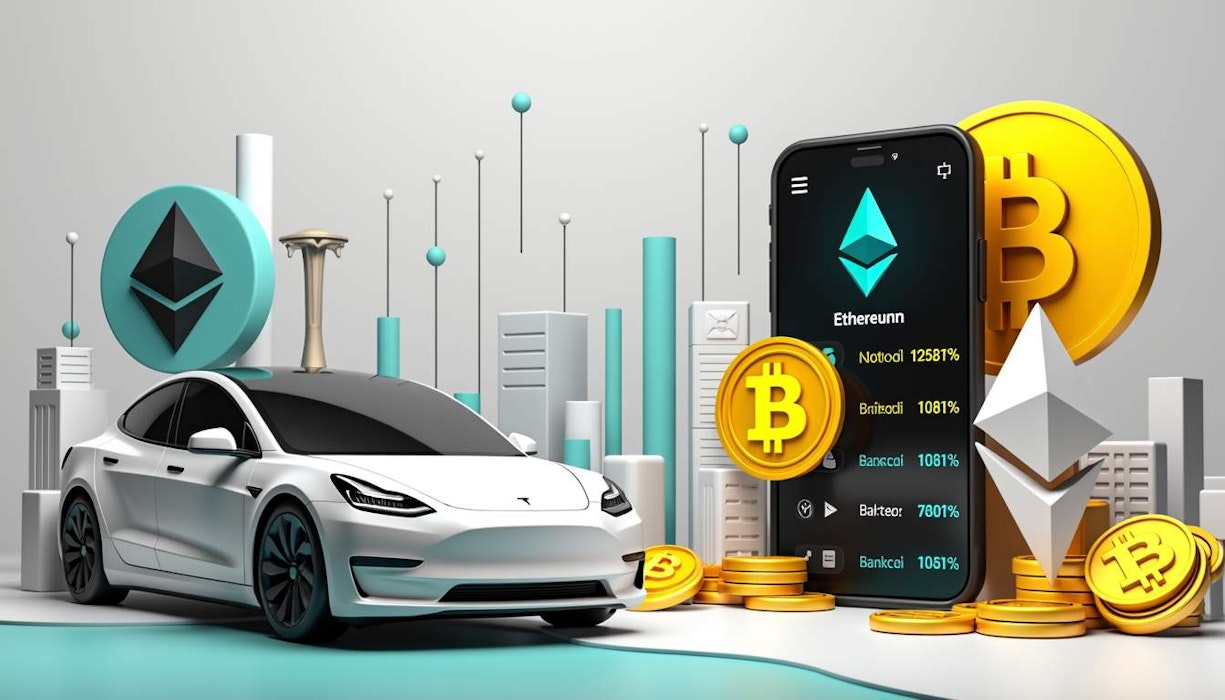Tesla has taken an extraordinary leap into the world of cryptocurrency, and the reactions have been quite mixed. As a major player in the electric vehicle sector, its plunge into the unpredictable waters of digital assets is raising eyebrows. With its P/E ratio being scrutinized, along with its AI strategies, we are left wondering just how sustainable this path is for the company. Let’s dive into what this means for Tesla’s future and the rest of the economy.
Tesla's Crypto Move
For those out of the loop, Tesla kicked off its cryptocurrency journey by making a significant investment in Bitcoin. This was a watershed moment, particularly for a company primarily associated with electric cars and ground-breaking technology. By incorporating digital currency into its financial strategy, Tesla is now at a nexus of two influential sectors: electric vehicles and cryptocurrency.
This endorsement of cryptocurrency from a high-profile company like Tesla has solidified a level of credibility that is hard to come by. However, it's also opened the floodgates to criticisms, especially regarding the environmental impact of Bitcoin mining and the erratic nature of crypto markets.
Tesla's Valuation: All Eyes on the High P/E Ratio
Now, let’s talk about that P/E ratio. Tesla's valuation is around 115-130, depending on where you look, which has led to some heated discussions. The P/E ratio is a key indicator of how much investors are willing to pay for a company's earnings, and Tesla's current number is eye-popping.
In the past, the P/E ratio has seen wild fluctuations. It peaked at 940.89 in December 2020 and dropped to 30.64 in December 2022. Right now, it's consistently above 100, which is quite a leap from historical averages.
A high P/E ratio suggests that investors expect strong future earnings. But failure to meet these lofty expectations could spell doom for the stock price. Some analysts are predicting a potential 48% drop in stock price as investor enthusiasm fades, revealing how precarious this situation is.
AI and Self-Driving: The Future?
Tesla is also banking on AI-powered autonomous driving to justify its high valuation. The company’s ambitions extend beyond electric vehicles to self-driving technology and robotaxis, which has captured Wall Street's imagination.
This move mirrors Nvidia’s success during the AI boom. Nvidia’s chips were key to the development of generative AI and drove exponential profits for companies like OpenAI. Tesla's AI exists on the roads, and if it successfully perfects self-driving, it will be, in a sense, its own chip supplier.
In fact, some estimates suggest a 20% increase in global GDP might be possible thanks to AI advancements in autonomous driving. That’s a huge yield, but there are also painful negatives to consider, such as job losses and economic disruption.
The Double-Edged Sword of High P/E Tech Stocks
Now we come to the crux of the matter: is investing in high P/E tech stocks like Tesla a savvy move or a risky gamble?
Risks
The volatility inherent in tech stocks is staggering. Their prices can swing wildly in short bursts, influenced by the ever-changing landscape of the industry. The tech sector is no stranger to sudden setbacks, whether it’s new competitors entering the fray or a shift in technology trends.
Rewards
On the other hand, the rewards can be equally monumental. High P/E stocks are often seen as a ticket to high returns because they are expected to grow faster than their peers. Then there’s the allure of innovation. Investing in companies like Tesla gives you a front-row seat to the latest advancements in tech, but it also comes with high stakes.
Summary
Tesla's bold foray into cryptocurrency and its ambitious AI-driven plans have created a perfect storm of excitement and skepticism. While the potential for rewards is tantalizing, so too are the risks. The question remains: will Tesla's gamble pay off or will it be the catalyst for something much more tumultuous? Only time will tell.
